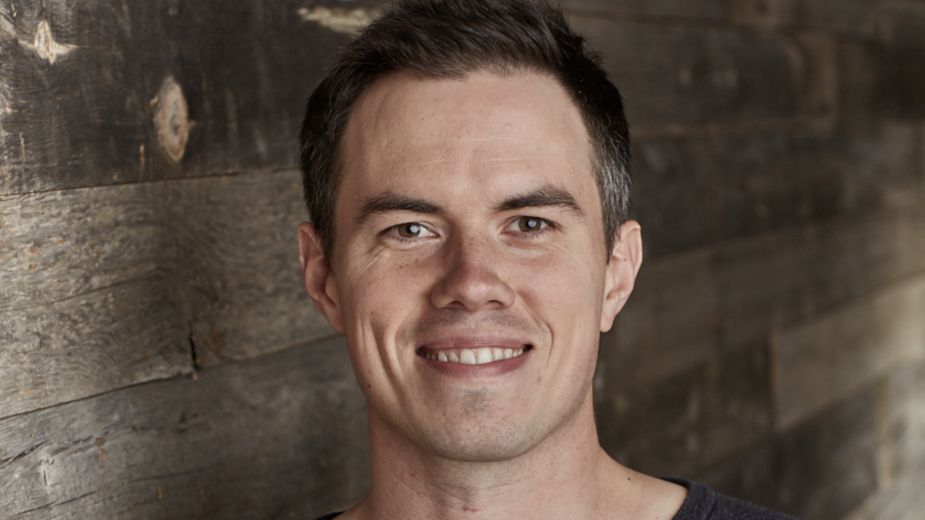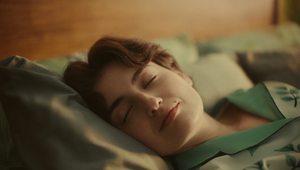
Finely Sliced: The Importance of Staying Versatile with Chris Murphy

The co-founder of Outsider Editorial, Chris Murphy plies his trade as a senior editor, delivering work for clients ranging from Chevrolet and KFC to Enbridge and Gatorade. A firm believer in creating feeling within film, he’s keen to use sound design, shot selection and music to elicit emotion, regardless of the category he’s working within.
With that said, he’s always keen to lean into fast-paced edits that bring the energy, blending the worlds of commercial and short film to create final products that strike the perfect balance between achieving the directorial vision and reflecting Chris’ signature creative and style.
LBB> The first cut is the deepest: how do you like to start an editing project?
Chris> When a project is first awarded, I always like to do a dive into music research. I want to start getting a feel for what I think the film could sound like. Once I have a playlist of my favourites, I start selecting. I always try to avoid looking at all the sequences ahead of time, so each set up feels fresh.
LBB> Non-editors often think of editing just in technical terms, but it’s integral to the emotion and mood of a film. How did you develop that side of your craft?
Chris> I think editing is the art of creating feeling within a film. The choice of pace, sound design, shot selection and music all work cohesively to elicit an emotion. I try to play in as many different genres as I can throughout the year, in order to help keep me balanced. Of course there are specialised editors who focus solely on certain categories (comedy, fashion, etc.), but I think it’s important to stay versatile as often as possible.
LBB> How important is an understanding of story and the mechanics of story?
Chris> Having a grasp on the bigger picture is always helpful when crafting the finer details. Fast textural edits, although seemingly insignificant, can help echo the larger messages in a film when used correctly. Looking for those subtle performances that open the door to interpretation are imperative for interesting work. Make people lean in and make their own connections, while helping them along the way where you can.
LBB> Rhythm and a sense of musicality seem to be intrinsic to good editing (even when it’s a film without actual music) – how do you think about the rhythm side of editing, how do you feel out the beats of a scene or a spot? And do you like to cut to music?
Chris> I love cutting to a good track. Music can inform and dictate your edit at times, and what some people don’t realise is that there is an art to cutting down a track to 60 or 30 seconds, in order to utilise the best parts that help tell your story. You never want to just edit to the music, because then the cut will become predictable and lose excitement. Instead, focus on rhythm. This is inherent in good editing, and those who know how to harness it create captivating work.
LBB> How important is your relationship with the director, and how do you approach difficult conversations when there is a creative difference of opinion?
Chris> The director-editor relationship is sacred at Outsider. Communication and trust is paramount to help craft something special - it’s something we encourage to all our staff. We make sure to keep the director involved all the way through a project, and chat with them before anything is shot.
Directors want to work with you for your opinions, so it’s also important to be honest. If we disagree, that’s fine. Try both routes and see what works best. Always be happy to admit an idea doesn’t work, but you have to trust your gut, even if it leads you down the wrong path at first. Sometimes, these explorations can bring to light the unexpected. Outsider’s investment in director relationships has helped our roster flourish.
LBB> What’s harder to cut around – too much material or not enough?
Chris> Not enough. You can always feel an edit that is trying too hard because of the lack of material. Kudos to the editors that can make something out of nothing, but for me, the more the merrier.
As a side note, please shoot with film whenever possible. It helps keep crews honest, and not just shooting the floor for two minutes because someone left the camera running.
LBB> Which commercial projects are you proudest of, and why?
Chris> There are a few projects that stand out to me. The first is ‘Go Beyond: And Overland Film’. It was a 7 day shoot and the follow up to a successful Winter launch for Chevrolet by Commonwealth/McCann and director Goh Iromoto. I have a natural tendency to lean into fast-paced edits that bring the energy, and with this we always wanted to blend the world’s of commercial and short film. The best part about it was the client was onboard from the beginning. In the end, we had a 2:50 extended cut that was released online, and a two-minute theatrical version that they actually put to broadcast. A rare feat in advertising.
I also had the pleasure of working with Courage and legendary director Henry Scholfield on ‘Sorry Utensils’ for KFC. It was my first foray with the brand. The idea was simple and we were able to find a track that did the concept justice - ‘All Out of Love’ by Air Supply. How can we make people feel sorry for inanimate cutlery? This has all the food shots a client could ask for, but you forget about the ‘ad’ and just get swept up in the filmmaking. I leaned into my comedic sensibilities and played the edit slow. It was nice to change things up, and I feel the practical VFX were seamless and icing on the chicken.
The last project is not my own. As a partner at Outsider, we believe in growth from within. And our newest editor on the roster, Calum Moore, crafted an incredible edit in ‘This is Golf’, directed by Ross Allen. I am a golf fanatic - not a great golfer. Calum’s ability to blend docustyle footage in a high intensity edit that is an ode to the game I love can’t be ignored… and also a take on the sport rarely seen to date. Calum’s reel is evolving at light speed. I am stoked to have him on our roster!
LBB> There are so many different platforms for film content now, and even in advertising something can last anything from a few seconds to a couple of hours. As an editor, are you seeing a change in the kind of projects you’re getting from brands and agencies?
Chris> Brands are becoming more comfortable with longer-form storytelling, which is great. On the flip side, short social asks are also on the rise. I know the ‘metrics’ tell us to have the brand up front and to keep things short, but I'll always still be a fan of longer-format commercials. Give the characters and the story time to settle in, and us editors more canvas to play with!
LBB> Who are your editing heroes and why? What films or spots epitomise good editing for you?
Chris> Of course, Thelma Schoonmaker is someone I have always looked up to as a big fan of Scorsese films. Her bold style is unmistakable. I’ve watched some of her films so many times that I see all the continuity mistakes, but because they’re so good, you don’t even care - ‘Goodfellas’ and ‘The Departed’ being my favourites.
In the commercial world Rich Orrik and Adam Marshall are inspirations. Rick’s cut the likes of Nike’s ‘Write the Future’, and ‘The Three Little Pigs’, but one of my favourites of his is Honda Civic ‘Everything’. Everytime I watch it, my head spins with the practical use of split screens and timing. It’s an insane amount of work and an incredible edit. Oldie but a goodie.
As for Adam (who I used to work with), he has a fast style that is drenched with emotion. His work on ‘Forever Forward’ and the latest Nascar film with Mark Jenkinson are just epic. More work for me like that please.
LBB> How does editing in the commercial world differ from the film world and TV world?
Chris> I think commercial work is decidedly faster paced than TV, which can be a challenge. With TV, you have room to breathe and let the story unfold and characters develop… but you have to be building to the season story arc. In commercials, you need to create those same emotions in a fraction of the time. It’s succinct storytelling. It looks so simple, but it’s anything but.
LBB> Have you noticed any trends or changes in commercial editing over recent years?
Chris> I think the evolution of editors is becoming faster. Gone are the days of having to assist for 10 years before being in the chair. There are so many opportunities to evolve your skills with the work out there. We have amazing assistant editors at Outsider, who will no doubt be the future voices of the industry. I cannot wait to see each one of them build their reels and flourish.















